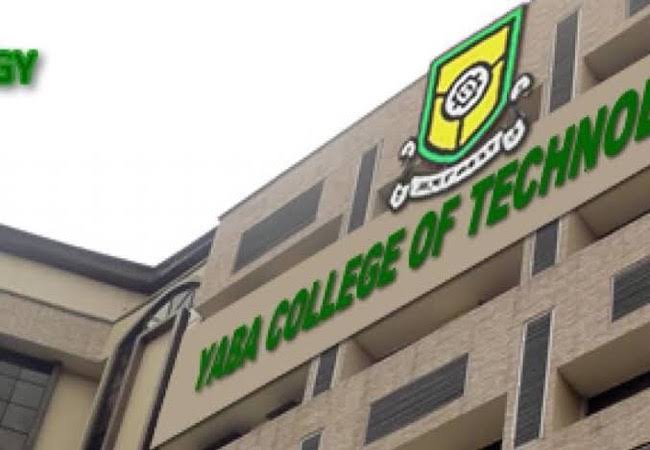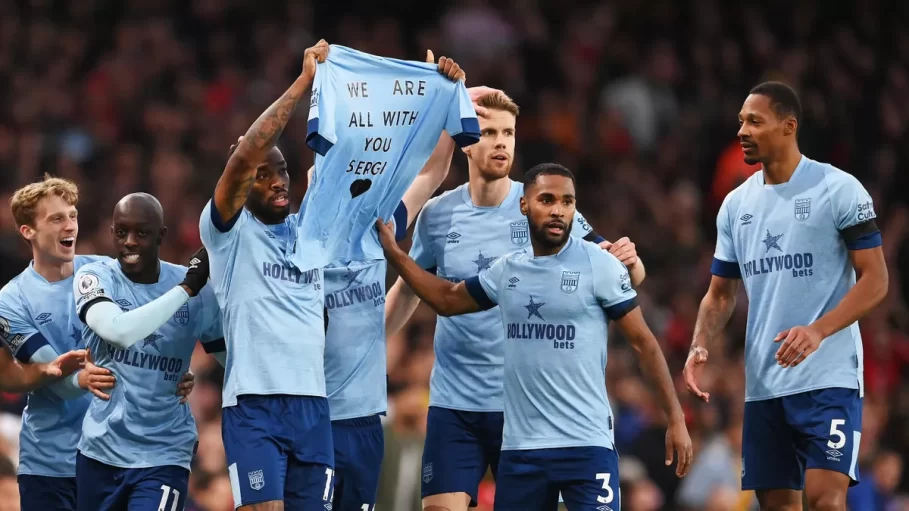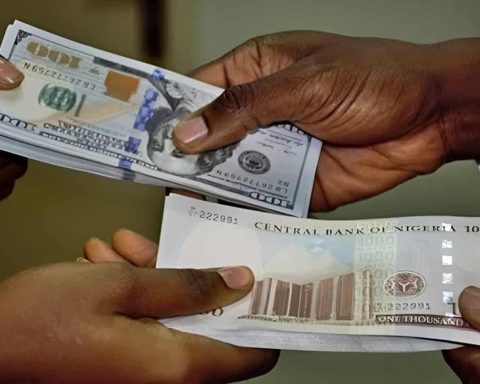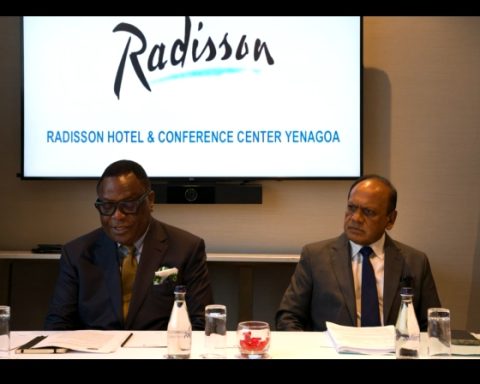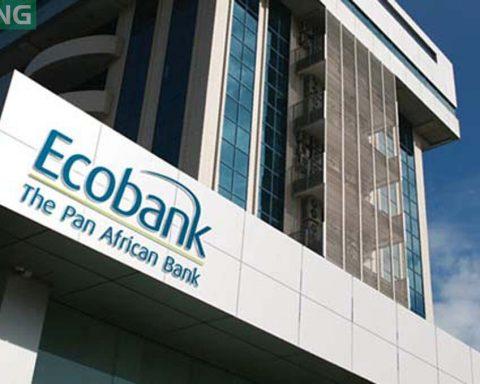There are two main aspects to defining the concept of ‘ethnic economy’. The first aspect of ethnoeconomics is understood as the economy of ethnic migrants, and the second is a geographically localized segment associated with the traditional types of labour activity of particular peoples.” – Kovanova Ekaterina, Nogan Badmaeva, Sayan Alekseev
Resource Curses and the Burden of Debt
Join our WhatsApp ChannelPer the Debt Management Office, Nigeria owes the Ex-Im Bank of China a total of $3.3 billion representing 9.7% of Nigeria’s external debt: part of its $4.1 billion bilateral debt to China.
READ ALSO: Lekki Deep Sea Port And Related Matters – SPECIAL REPORT
Relations between Nigeria and Britain and rest of the West is fraught with perplexity. At the core of what commentators describe as an ‘economic basket case’ is a systemic broad-based, multi-tiered, rampant, and implacably corruptive process. Our negative balance of trade is not due to a lack of resource minerals in Nigeria. In fact, Nigeria has more untapped resources than she knows how to exploit. Neither is it due to an adverse demographic profile. Nigeria is blessed with a demographic that has a bias for the young – the productive base preferred by economists. About 70% of Nigeria’s population (Worldometer’s current estimate is 219,389,888) are under 30 years, and 42% are under the age of 15 years.
So, how does a country blessed with a lot of mineral resources, including crude oil, and an economically viable demographic be a ‘basket case’ on the world stage? With critics, the easiest answer is to blame our political leadership who fester the corruption and sectionalism that kill potential. But the popular wisdom is that, after 62 years, Nigerians should stop making excuses and get on with it.
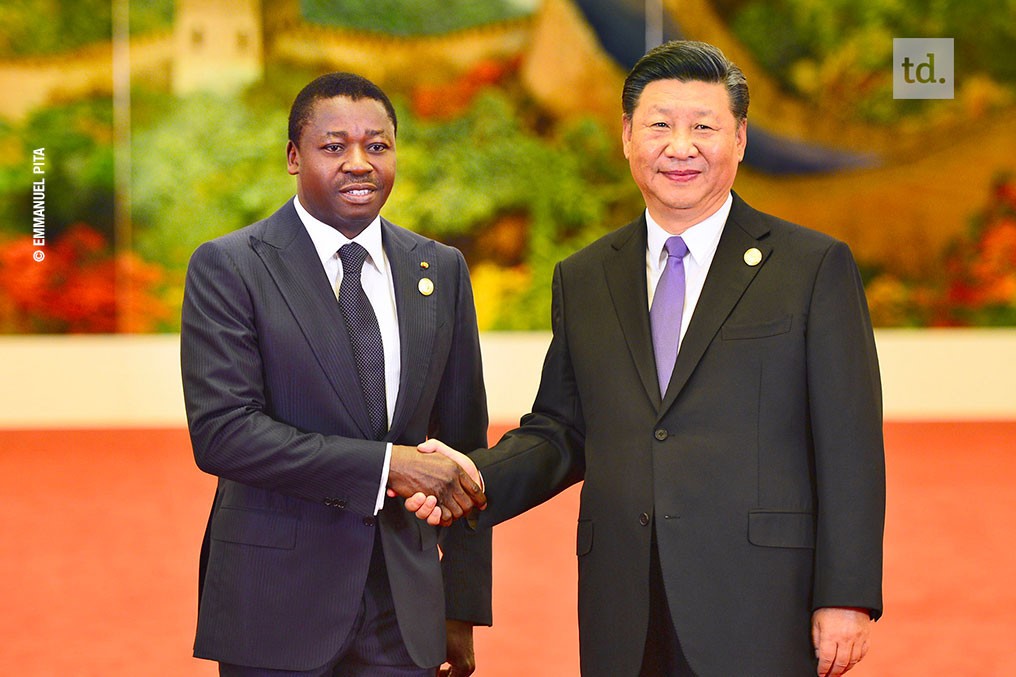
Everything Has Two Costs – Actual Cost and Opportunity Cost
Here we are, inching closer to the embrace of the panda bear. But China presents a different kind of challenge in a couple of ways. First, it was the Chinese who chose us, not the other way ‘round. After a careful consideration of their long term economic prospects, China decided to make Nigeria an anchor of her trade hegemony in west central Africa. Since the liberalization of the economy under General Ibrahim Babangida’s Structural Adjustment Program in the late 80s and early 90s, Nigerian merchants – led by Ndigbo traders from southeastern region – have looked to China to procure competitively-priced consumer goods for export to Nigeria. They were not disappointed and made brisk business.
If the Nigerian trader was ignorant of the cost of opportunity, not the Chinese.
China deployed their economic intelligence capability and vacuumed up details of our consumer inventory. They perfected a complete index of Nigeria’s popular imports and by a careful review of our consumer psychological profile they began to embed themselves in situ. The Chinese arrived in Nigeria’s commercial hotspots and began to act as their own agency. They are in:
- The Alaba International market as partners in the electronic consumer trade – in the wake of the popularity of bootleg music and movie tapes – with outreach to Onitsha, Abeokuta, Port Harcourt, Jos, and Kano
- The Ladipo and Orile-Iganmu markets as partners in the car spares, machines and machinery, and building materials trade with outreach to Kano, Jos, Nnewi, and Aba
- The Lagos Island and Mushin markets as partners in the $1.36 billion annual patent medicine trade with outreach in Mushin, Ibadan, Jos, Kano, Onitsha, and Orlu markets
Soon Chinatown Markets sprouted in Lagos and other parts of Nigeria where one could buy affordable imported consumer goods. China’s participation in Nigeria’s import trade and nationwide retail and wholesale commercial spaces inevitably expanded to the export trade in solid minerals. China’s manufacturing superstructure needed a large inventory of raw materials and minerals. They found it in Nigeria. China imports 80% of Nigeria’s solid minerals: Valued at $42.46 million in 2020.
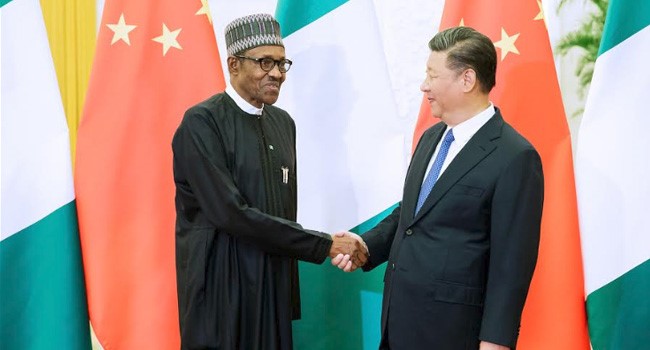
Nigeria as The Centrepiece of China’s Belt and Road Initiative (BRI) in West Central Africa
The BRI is a trillion dollar network of roads, highways, bridges, shipping lanes, and seaports connecting the entire world in an expansive trade hegemony that starts and ends in manufacturing hubs on mainland or coastland China. It’s the brainchild of Xi Jinping – in his personification of the Bond villain, Auric Goldfinger – with a vision to make China the singular workshop of the world. In fact, in certain respects, it appears that he succeeded. In the early months of 2020, after the outbreak of Covid-19 pandemic I noticed a shortage of facemasks in Wal-Mart stores across the US. Reason: In the wake of the Wuhan crisis, China had shuttered their production plants nationwide to deal with the coronavirus.
So, the world didn’t begin to fight the pandemic until China had gotten some handle on her own outbreak.
Nigerian Politics Sometimes Gets in the Way of the Economics of BRI
The $1.5 billion Lekki Deep Sea Port is just one plank of China’s trade hegemonic plans in Nigeria. The Chinese have full unsupervised import and export initiative in the operations of the Lekki Freeport Deep which processes ex-im trade not only with China but other countries as well. As I mentioned earlier, they get to keep 75% of the operating profits. Presently Lekki Freeport will not handle the export of crude oil but that may change if the Dangote Refinery, that is nearby, gets a pipeline from the oil fields in the Niger Delta.
READ ALSO:China’s COVID-19 Surge: Why Nigeria Needs Border Surveillance, Vigilance – Experts
The government of civil war hero, Maj. Gen. Muhammad Buhari, who regards the SE as ‘a dot in a circle with nowhere to go’ has been a good partner with the Chinese. With his transportation minister, Chief Rotimi Amaechi as pointsman with the Chinese, China has built some mega projects in Nigeria:
- A $1 billion Hydro Electric power station in Zungeru on the banks of the Kaduna River, a tributary of the Niger, in central Nigeria
- An expansion and upgrade of the railway network in the southwestern (Lagos-Ibadan), central (Abuja-Kaduna), and northwestern (Kano-Jibiya-Maradi) regions. Maradi is in Niger Republic
- A dual carriageway from Makurdi – Keffi – Abuja
- Invested in the Marine University of Transportation, in Daura, the spiritual home of the Hausa and the president’s homestead. Daura is 94 miles from Zinder in the Sahel, and far from any deep water sources
It appears that politics guides the choice and location of these projects with a curious exclusion of the of the people of southeastern region – the original drivers of trade contact between Nigeria and China; and the south-southeastern region that produces the crude oil.
The Zero-Sum Game of The Chinese Along Nigeria’s Borders – Total Encirclement
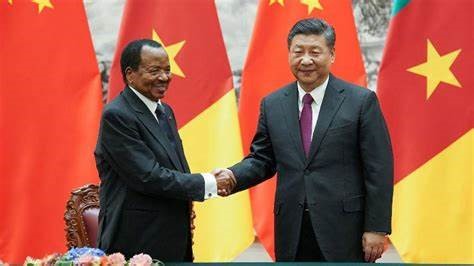
China has a strategic economic policy in all the countries that are contiguous with Nigeria with an eye on Nigeria’s 220 million strong market:
- China Harbor Engineering Company (CHEC) operates the Kribi Deep Sea Port in the Gulf of Guinea in a bid to decongest the oldest Cameroonian seaport in Doula: 94 miles north west of Kribi
- China operates Togo’s deep sea port in Lome. Administered as a Free Trade Zone, the port is a hub for re-export business to Nigeria. With a comparatively high index for ease of doing business, many importers use Lome as a jump-off to Lagos
- China is funding a broadband project in Benin Republic to modernize telecommunications in the hinterland and improve access and insertion in the West African information super highway
- China is building a railway megaproject from Cotonou – running parallel to Nigeria’s 500-mile border with Benin – all the way to Niamey. Value: $4 billion
Finally, China is firmly involved in both the upstream and downstream petroleum sectors in Niger Republic which has a 1000-mile border with northern Nigeria. China has a $5 billion deal to develop and exploit the Agadem block, then she bought out the original French investors in SORAZ refinery and is now a majority shareholder. SORAZ has a capacity to refine 20,000 barrels of crude oil daily.
Will It Be Different This Time ‘Around
Drawing from the preceding narrative, (Prof. Akin) Mabogunje, therefore, concluded that ‘the present political arrangement of an over-centralized federal government cannot lead to a new and progressive path of economic and social development.” – Henry Boyo, Vanguard
Nigeria is caught in a tough love triangle with Britain and China. In a previous article, I had argued that the Elizabethan colonial legacy was the establishment of a dependency by way of a leadership selection process that favours kakistocracy – where the least qualified PEP (persons exposed to politics) always manages to attain the highest office. This is playing out in this campaign to elect a president. Two out of the three leading candidates have shown no appreciation of the looming doom Nigeria faces with its unsustainable debt first to a Western power, then lately to an Asian power.
For them it’s business as usual.
As a matter of course in the current campaign, both candidates have all but teamed up against the other candidate who promises to put an end to corruption and cause a change in behaviour at the leadership level.
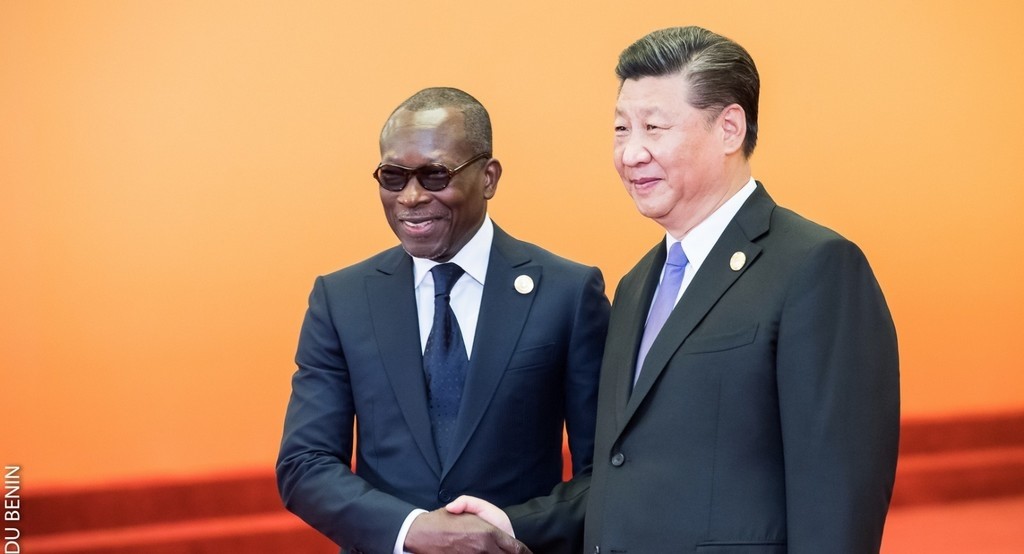 Figure 4 Beninois President Patrice Talon and Xi Jinping. Credit – South China Morning Post
Figure 4 Beninois President Patrice Talon and Xi Jinping. Credit – South China Morning Post
Americans would call the choice before the Nigeria voter, “a no-brainer!” Yet, the Nigerian electorate seems frozen in thought like the proverbial deer caught in a car’s headlights. Many are stuck in the old ways of decision making. But a future without a new beginning will be no beach party. The drivers of Chinese policy in Beijing share the sentiments Lugard expressed in the Dual Mandate, except that they are even more insidious.
In a multi-cultural and multi-religious society such as ours with strong regional centres of productive activity, ethnicities and diversities have their economic potentials built in. But those are lost, as a matter of course, where a strong centre makes infrastructural investment decisions based on political motives even where they are economically counterproductive. It makes no sense to increase market outreach to Nigeria’s neighbours as you are simultaneously excluding a key economic unit for political reasons. The Chinese presence in Nigeria is a curiosity in the sense that they had chosen sides to work with. But what are their long-term goals with regards to the increasing external debt of their client state, Nigeria? From an apparent position of strength, one can argue that they didn’t have to make deals with the powers that be at the opportunity cost of good economic sense. Enlightened self-interest demands that China keeps an eye on Nigeria’s capacity to repay her loans.
On its own face value one might suspect that the Chinese are not worried about a looming debt default having factored it in as they took sides in Nigeria’s political fault lines.
The government spent 80% of its revenue on servicing debt last year and the IMF predicts that it will soon not be able to raise enough income to cover those obligations.” – William Clowes, Bloomberg
This concludes a two-part article on the Lekki Deep Sea Port and matters arising from it.
Ik Ngene writes from Atlanta


